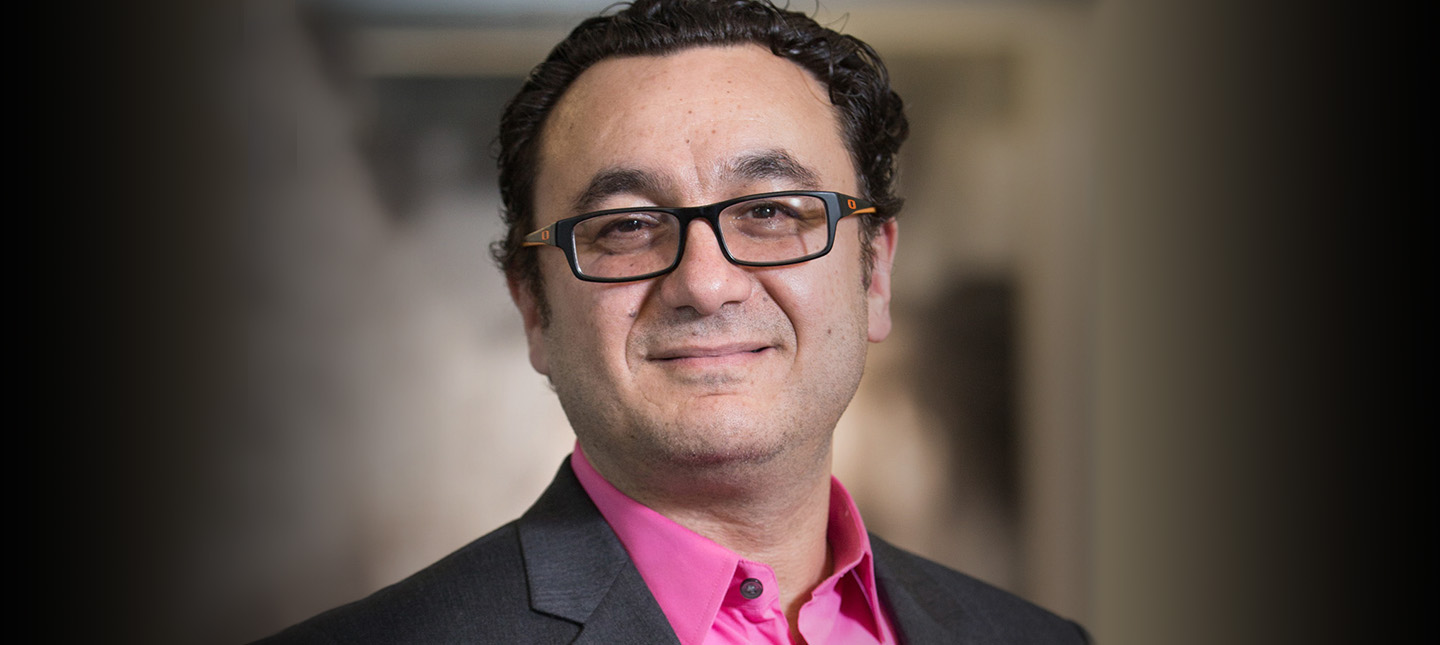Enhanced support for patients with dementia and their unpaid caregivers
A team including Eskenazi Health, Indiana University School of Medicine and Regenstrief Institute has helped guide a new dementia care and payment model announced by the Centers for Medicare and Medicaid Services (CMS) Innovation Center.
Guiding an Improved Dementia Experience (GUIDE) is the first model established by the Innovation Center that directly addresses the needs of unpaid caregivers, usually family, of individuals living with Alzheimer’s disease and related dementia. The model will provide a comprehensive package of care management and coordination for caregiver education, support and respite services with the goals of improving quality of life for people living with dementia, reducing caregiver strain and delaying nursing home placement to keep patients in their homes and communities longer.
Through the GUIDE Model, CMS will test a new, voluntary alternative payment for participants who deliver key supportive services to people with dementia.
The Indiana-based team includes the Sandra Eskenazi Center for Brain Care Innovation at Eskenazi Health, Regenstrief Institute and IU School of Medicine. Researcher-clinicians who developed, validated, deployed and scaled a novel dementia care coordination model serving both patients and caregivers include Malaz Boustani, M.D., MPH, and Christopher M. Callahan, M.D. The brain care center has served as the lab and proving ground of the Indiana team’s work.
“I’m extremely excited that the Innovation Center has taken these bold steps, especially in the area of caregivers and respite care,” said Dr. Boustani, who has appointments at Eskenazi Health, Regenstrief and IU School of Medicine and is part of a 19-member national panel providing recommendations to CMS. “We’ve proven – time and time again in our ‘lab’ at the Sandra Eskenazi Center for Brain Care Innovation – that collaborative care is effective, caring and efficient in addressing the complex biopsychosocial needs of both the patients and their unpaid caregivers.”
In addition to the CMS Innovation Center, other key players in development of the project are the Alzheimer’s Association and the John A. Hartford Foundation, in addition to the Milken Institute and AARP.
According to CMS, dementia takes a toll on not just the people living with dementia but also on their loved ones and caregivers in a way that almost no other illness does. About 6.7 million Americans currently live with Alzheimer’s disease or another form of dementia, a number that is projected to grow by nearly 14 million by 2060.
“We’ve created an environment designed to promote and support the health and well-being of each patient, and through many years of research in dementia care, we can obtain better outcomes at lower costs,” said Lisa Harris, M.D., chief executive officer of Eskenazi Health. “Eskenazi Health has been a pioneer in this model of care, and with the announcement by the Center for Medicare and Medicaid Innovation, the concept is becoming the new standard of dementia care.”
“Alzheimer’s disease and other dementias are devastating for patients and their caregivers. That is why these illnesses have been a major focus of our research,” said Jay Hess, M.D., Ph.D., dean of IU School of Medicine and executive vice president for university clinical affairs. “This new payment and care model influenced by our researchers will improve the quality of life for caregivers, and help support them as they care for their loved ones.”
“Substantial inequities in access to dementia care also exist for minorities, and are compounded by important social risk factors. Sam Regenstrief was not only a disrupter and an original thinker; he also was an innovator and implementer who sought to improve access to care and the efficiency of care delivery,” said Rachel Patzer, PhD, MPH, Regenstrief Institute president and chief executive officer. “The implementation of a program that collaborates closely with local health systems and community-based organizations to deliver comprehensive healthcare that also addresses patients’ social needs is a realization of Sam’s vision when he started our organization. This innovation in dementia care delivery started locally with applied research from Eskenazi Health, the Regenstrief Institute and IU School of Medicine researcher-clinicians – and has led to a significant opportunity to change care nationally to ultimately lead to better and more equitable access to care.”
CMS will release the application for the voluntary model in the fall of 2023. Prior to the application release, interested organizations are encouraged to submit letters of intent to CMS by September 15, 2023. The model will run for eight years beginning July 1, 2024. Eligible organizations include both new and established programs of providers and suppliers with expertise in providing longitudinal dementia care for community-dwelling Medicare (and dual eligible) beneficiaries living with dementia.
The press release and associated materials from the Innovation Center are here.
Sandra Eskenazi Center for Brain Care Innovation at Eskenazi Health
The Sandra Eskenazi Center for Brain Care Innovation at Eskenazi Health is the new destination of hope for people and families living with Alzheimer’s disease and other forms of dementia, late-life onset of depression and anxiety, early schizophrenia and those recovering from time in an intensive care unit. It is the first center of its kind in the United States to combine pioneering research and clinical care, yielding faster and more effective outcomes for the patient and caregiver. The patient and caregiver are treated as a team, with caregivers and family members becoming active participants in care and having significant responsibility for the overall success of treatment. While it primarily involves patients and their families in Indianapolis and Central Indiana, the Sandra Eskenazi Center’s model will be scalable for national locations, age groups and diseases.
About Regenstrief Institute
Founded in 1969 in Indianapolis, the Regenstrief Institute is a local, national and global leader dedicated to a world where better information empowers people to end disease and realize true health. A key research partner to Indiana University, Regenstrief and its research scientists are responsible for a growing number of major healthcare innovations and studies. Examples range from the development of global health information technology standards that enable the use and interoperability of electronic health records to improving patient-physician communications, to creating models of care that inform clinical practice and improve the lives of patients around the globe.
Sam Regenstrief, a nationally successful entrepreneur from Connersville, Indiana, founded the institute with the goal of making healthcare more efficient and accessible for everyone. His vision continues to guide the institute’s research mission.
About IU School of Medicine
IU School of Medicine is the largest medical school in the U.S. and is annually ranked among the top medical schools in the nation by U.S. News & World Report. The school offers high-quality medical education, access to leading medical research and rich campus life in nine Indiana cities, including rural and urban locations consistently recognized for livability.










